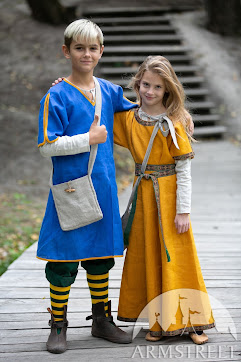Her flower was the lily, ominous
white, that spoke of pale stones left by moonlight,
when the toppled spades landed on the might
of what we call home, writing, venomous.
There was a churchyard, yet all was still now,
and by the darkness’s dread came Lilith fair;
they thought her but a witch and yet ensnared
by her enchantments, verse and rhyme they bow.
Her hair was fiery strawberry blond, to
the waxen marble floor. When by the fence
there came a herd of Jersey cows, and she
called them, and their bells jangling, they came through
the gate into the churchyard. The spire lent
its shadow to the falling light, and lea.
There was a glad flower, men in a bind—
if it were real or imagined; yet nigh,
it produced the most frightful velvet kythe,
hallucinations of another kind,
and no one knew their meaning until dreams
were interpreted by those of the art.
They woke from their starry beds with a start
and could not discern if their nightmares, cream
of another chocolate from the night’s fist.
The problem was that peasants were so tight
with their coins that they could not entertain
royalty. Yet Lilith summoned all, list
in royal procession, walking down bright
aisle with swaths of innocent gown and train.
The Lilith was a beauteous blond curl
that wrapped its way around her platinum
coronet, the head whose skull was mamon
and yet ivory. Her ash produced pearl,
yet only one drop, for the inner scent
of transcendence had wreathed her to the earth
her dying day, when on a pyre of mirth
she lay. The clothing of the trees was rent
to autumn’s scarlet mood, and bounteous
sepia scarves, in colours of the weave.
She wore Eve’s clothing yet, adorned in sun’s
gold rings that haloed her; now humorous
she glanced in the mirror of the lake’s eve
and knew the moments of the fairy’s pun.
There was a time in the beginning when
all earth had bowed to her regality,
her mind with Adam’s knew equality,
her mode had been his decent soul mate then.
Yet, when she would not marry him in moons
and acquiesced only to the wood’s haunt,
she fell short of all his desires, his wont
for a mother of children, that blue womb
submitted to the throne of his mindful
patriarchy, his husbandry, his care;
when she would not bear his children, her cool
black eyes flashed at him lightning’s silver foil…
the tresses of her head laid golden bare,
and with her mouth she kissed him as a fool.
Her power would be in her aloneness,
the desert of her hands without fruit ripe—
crimson from lime—her stateliness a gripe
she would take from the ancient gnarled fruitless
mossy tree, growing from the beginning
of the world to the end of time, purple
starless, casting shadows of its cripple
who embarrassed it too, leaving a line
of shame. She would leave, then, and make self stilled,
scarce amongst the rocks and grey caverns stone
of the desert. Her planet, colourless
was another space, where no being dwelled
save the remnants of Isaiah, alone
with his parchment scroll, rolled here effortless.
There we would find her, quiet as the sand
under the moon, in a desert of owls
where only jackals hide. This was her fowl,
the birds of the air she called by name, and
they followed through skies of dusty Hades
in train, as if the light has held them there.
It was the end, she was the thief, and bare
his hand, he would, for his last card, of spades,
was dark Lilith. They feared her in the night
as was her way, with black claws and fearsome
beak. They pulled the shades, they held their children
close, yet they had called upon her midnight
with frightening incantations, winsome
wiles and treacherous prayers to euthendom.
Was there an end to this ghostly story?
The moons swirled, and rings of planets turned to
silver, yet there was only one thorough
woman dark, one—alone in her pouring
called a heaven of hell, was this necklace.
Diamonds of its setting glimmered power,
in the shallows of seas, fish like flowers
swam silver before the throne of clear glass:
he who sits at the bottom of the Great
River watched it all. He knew Lilith from
of old, and watched her hair meld with the gold
sunsets of men’s minds. Manicured estate
stretched to the wrought iron fence in green dun.
New York: this was the city of dreams run.
Emily Isaacson
Photo used by permission: Armstreet Clothing Company







